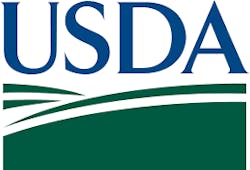On Sept. 22, U.S. Department of Agriculture (USDA) Secretary Tom Vilsack announced that the Department will be awarding $502 million in loans and grants to provide high-speed internet access for rural residents and businesses in 20 states.
As stated by a press release, the funding is "part of the Biden-Harris Administration’s commitment to investing in rural infrastructure and providing reliable, affordable, high-speed internet for all."
Secretary Vilsack commented:
“President Biden’s commitment to high-speed internet in rural communities is foundational to ensuring that the nation’s economy continues to expand from the bottom up and the middle out. High-speed internet will improve the rural economy. It will help rural businesses grow and get access to new markets. It will help rural residents get access to more and better health care and educational opportunities. USDA knows rural America is America’s backbone, and prosperity here means prosperity for all.”
USDA Rural Development provides loans and grants to help expand economic opportunities, create jobs and improve the quality of life for millions of Americans in rural areas. The funding assistance supports projects such as: infrastructure improvements; business development; housing; community facilities such as schools, public safety and health care; and high-speed internet access in rural, tribal and high-poverty areas.
With the new announcement, USDA is making 32 awards in Alabama, Alaska, California, Colorado, Illinois, Iowa, Kansas, Michigan, Minnesota, Mississippi, Missouri, Montana, Nebraska, North Carolina, North Dakota, Oklahoma, Oregon, Tennessee, Texas and Wyoming.
Many of the awards will help rural people and businesses on Tribal lands and people in socially vulnerable communities. Highlights, as stated by USDA, include the following:
- In Michigan, the Sault Ste. Marie Tribe of Chippewa Indians is receiving a $25 million grant to connect 1,217 people and 26 businesses to high-speed internet in Chippewa and Mackinac counties. The Tribe will make high-speed internet affordable by requiring its service provider to participate in the Federal Communications Commission’s (FCC) Affordable Connectivity Program, which provides a discount of up to $30 per month – or $75 per month for households on Tribal lands – on household’s internet bills, as well as the FCC’s Lifeline Program. This project will serve Sault Ste. Marie Off-Reservation Trust Land, the Sault Ste. Marie Reservation as well as socially vulnerable communities in Chippewa and Mackinac counties.
- Net Vision Communications LLC is receiving a $12.4 million loan to connect 4,587 people, 300 businesses, nine farms and 15 public schools to high-speed internet in Barton County, Missouri. This project will serve socially vulnerable communities in the county.
- Oklahoma’s Southern Plains Cable LLC is receiving an $8.1 million loan and an $8.1 million grant to deploy a fiber-to-the-premises network that will connect 7,093 people, 230 businesses, six farms and 29 schools to high-speed internet in Caddo, Comanche, Cotton and Grady counties. Southern Plains will make high-speed internet affordable by participating in the FCC’s Affordable Connectivity and Lifeline programs. This project will serve the Kiowa-Comanche-Apache-Fort Sill Apache tribal statistical area as well as socially vulnerable communities in Cotton County.
The ReConnect Program
USDA is making the investments through the third funding round of the ReConnect Program. The Department has announced $858 million in the third round of ReConnect funding so far, and plans to make more investment announcements under this program in the coming weeks.
The new announcement follows the Department’s July 28 announcement that it has invested $356 million through the ReConnect Program to help very rural residents and businesses in 11 states gain access to high-speed internet.
To be eligible for ReConnect Program funding, an applicant must serve an area where high-speed internet service speeds are lower than 100 megabits per second (Mbps) (download) and 20 Mbps (upload).
The applicant must also commit to building facilities capable of providing high-speed internet service at speeds of 100 Mbps (download and upload) to every location in its proposed service area.
The Department added that it will make additional investments for rural high-speed internet in the coming months, including funding from President Biden’s Bipartisan Infrastructure Law, which provides for a $65 billion investment to expand affordable, high-speed internet to all communities across the U.S.
